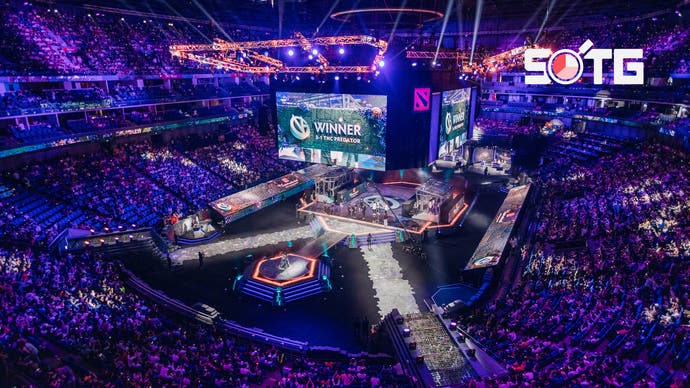State of the Game: Dota 2 - a juggernaut rumbles on despite Valve's signature detachment
Growing lanes.
Three weeks ago I told myself I wasn't going to play Dota 2 again until a new patch comes out. After the exciting launch of what might be the biggest patch of all time, games had started to become stale. At the admittedly average level I play at, a lot of games are all but over by the 20-minute mark, if you lose the lanes, it's incredibly hard to win. This means fewer matches than ever will result in epic comebacks and close battles where Dota really shines and gives you the incredible sense of achievement that few other games can match.
Since then, I've played 37 games of Dota chasing that feeling. I can think of one that delivered it.
This is the curse of the Dota player. The good times in Dota are so good, that it takes a lot to make you stop playing. Hours of miserable, soul-crushing games are easily forgotten when you win an hour-long war where you know your actions played a big part in that. It sounds problematic, and now that I've written it down I'm questioning the thousands of hours I've played, but I can still tell you about some epic games I played 10 years ago, and I wouldn't trade those experiences for anything (other than a literal boat load of cash). It's just annoying that seemingly fewer games than ever are memorable.
Back in April Valve released patch 7.33, which is easily one of the two biggest patches in Dota 2's history. The Dota 2 map, which had retained its core shape for years, was suddenly 40 percent larger, with new areas added around the edge of each side lane. There were a ton of new objectives, both big and small, including portals that will take you from the top lane to the bottom lane for free in a matter of seconds with no cooldown. The usual major patch changes of hero reworks, new items and a few core system tweaks were also present. It was seen as an update that would keep Dota fresh and exciting for years to come.
Those chaotic first few weeks when everyone was figuring out how to play were glorious. Experimenting in the chaos of the new map was some of the most fun I had in Dota in years, so much so that I played 27 games of Dota in the five days after 7.33 was released. Even now, weeks later I'm still learning new things. In a game I played getting screenshots for this very article, an enemy Tusk killed four couriers thanks to a ward midway down the radiant safe lane that I had never seen before, and only discovered by going into the replay after the match because it pissed me off so much that I couldn't find it.
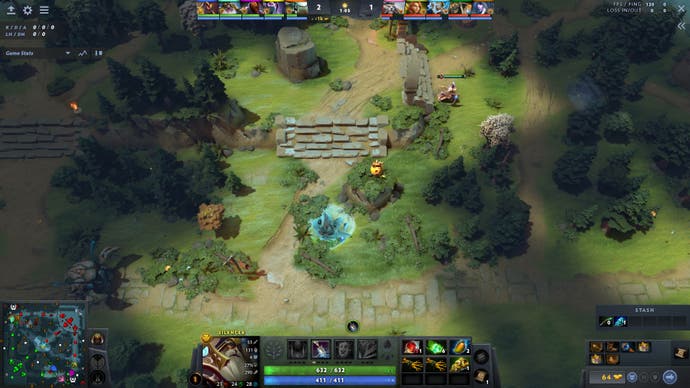
But as the weeks have gone on and Valve has made some small changes, including hilariously muting every single player by mistake, which might be the best change ever, there seems to be a fundamental problem with this new version of Dota; the early game is more important than ever. If you come out of the lanes on top, there's a very good chance you'll win the game, and this results in some incredibly unsatisfying matches. A crushing loss in any game is never fun, especially when you feel that your opportunity to change the outcome was limited to just a handful of moments.
You will still occasionally get the closer, longer games, and they are as good as ever - but for the average player they feel rarer than ever. This was true in the pro scene as well, in the recent DreamLeague Season 20 tournament, only two of the final 10 games went over 40 minutes, and while teams traded wins, there were very few games with big lead changes. However, at the just concluded Bali Major, games were typically longer and closer, so the pros may have figured out something the rest of us haven't just yet!
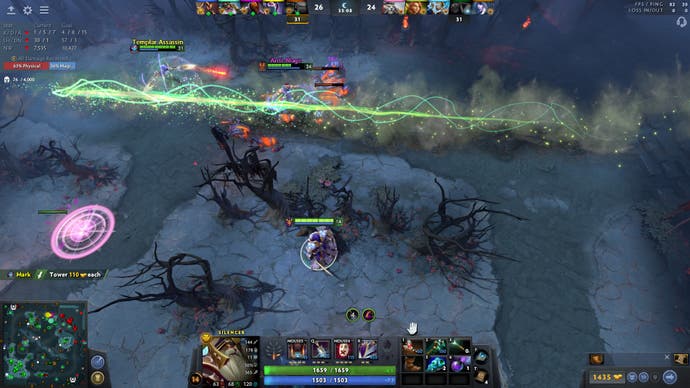
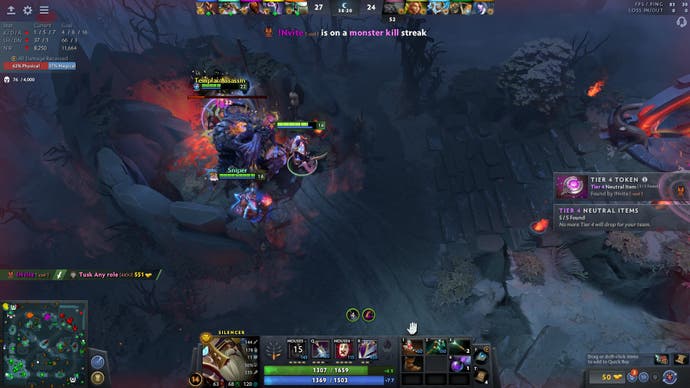
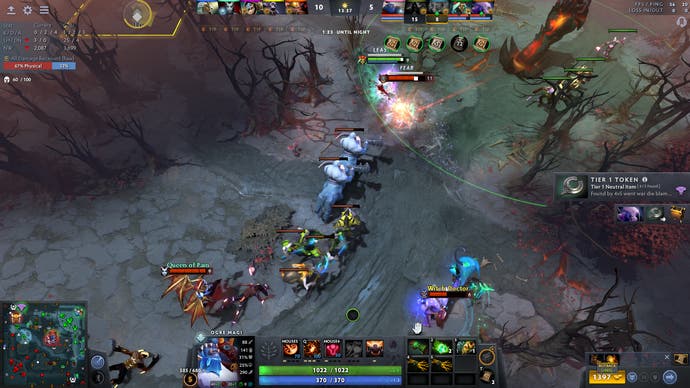
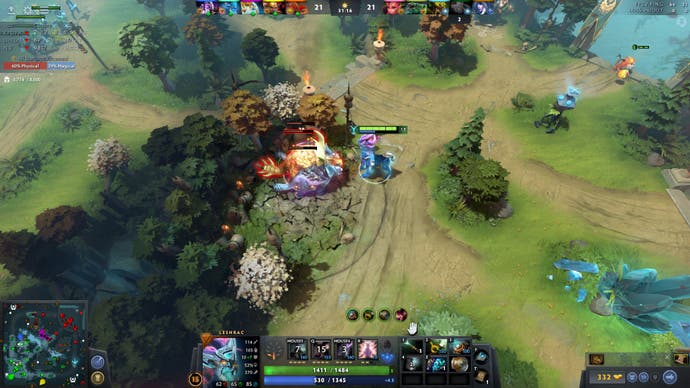
Speaking of the pro scene, much like playing Dota right now, it can feel difficult to find regular enjoyment in it. It's no secret that the entire esports industry is suffering financially right now, but in Dota the drop in quality of events has been dramatic in the last 18 months.
As tournament organisers try to cut costs, most of the English language broadcasts for the top online regional leagues have been taken out of their in-person studios to go fully remote. Of the three Majors this year - international LAN events that give qualifying points for the big global championship, The International - only one has been held in a traditional stadium, and the other two have been plagued with technical issues. Even at The International last year, which has typically been organised by Valve and had the highest broadcast quality of any esports event, the early stages featured remote casters, and despite the tournament being in Singapore, the English language analyst desk was strangely located in Norway.
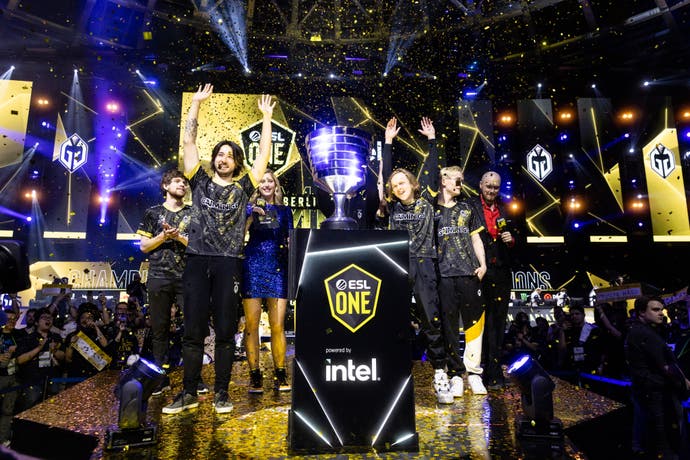
There is, however, one series of tournaments that is maintaining the production value Dota fans expect. The ESL FACEIT Group has been a successful Dota tournament organiser for years, but this year was only given one Valve-supported tournament to run and no online leagues (last year it had two!). This resulted in ESL turning their online league into, effectively, a competitor to Valve's official circuit, and thanks to their new owners, the Saudi Arabian Public Investment Fund, they have the money to easily blow other tournaments out of the water. The two seasons of DreamLeague this year have, from a production standpoint, been the best of any Dota tournament. Now, the top teams from these competitions have qualified for The Riyad Masters, a $15 million tournament that is due to be held in Riyad, Saudi Arabia, and there is a real possibility that the prize pool will be higher than that of The International this year.
A few weeks ago in fact, Valve announced they will not be releasing the traditional Battle Pass that crowdfunds The International's prize pool. Instead, it'll be focusing on a new smaller funding model and spreading the rest of the content they would usually make for the battle pass across the year. It remains to be seen if this is a positive for the game, but for the esports scene, less money is certainly not going to be helpful.
Based on this season of the Valve-backed Dota Pro Circuit, and arguably The International last year, it appears that the only way Dota fans will get tournaments at the level they have come to expect is to embrace the sports washing of Saudi Arabia. But without it, pro Dota 2 could have a very dire outlook.
If, as I expect, the ESL events consistently have better production and more money on offer than the Pro Circuit then I would not be surprised if Valve kills it off in a year or two and allows ESL to just run whatever they want without having to pay any money out to the pro scene other than TI. It would make business sense and would remove a decent amount of work which they seemingly aren't interested in doing. ESL doesn't need to make money from these events provided they promote the country and one of the Saudi royal family is rumoured to be a big Dota fan which probably helps.
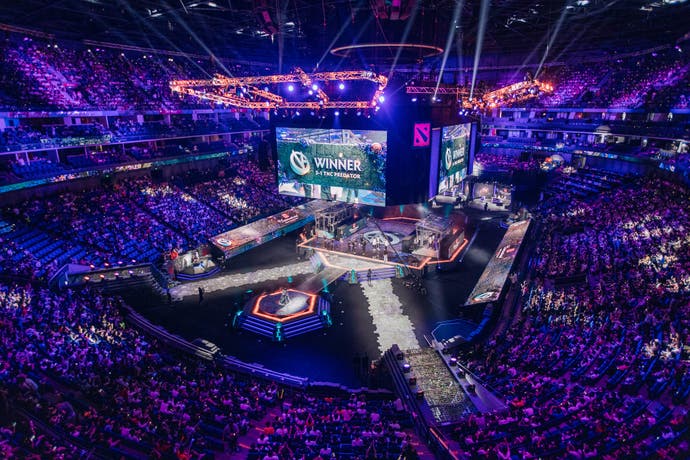
As someone who is uncomfortable supporting Saudi-based events but makes at least some of my living from covering pro Dota, it's a difficult position to be in, and it's one I know people working at teams playing in these tournaments, broadcast talent and even ESL staff share. There is a definite feeling of resignation to the fact that if people want to continue to work in, or even just enjoy, pro Dota, sooner or later they are going to have to at least watch Saudi-funded events. That, however, is exactly the point of sports washing.
Away from the core Dota experience, Valve's attempts to turn Dota into a League of Legends-esque franchise have almost completely failed, with Artifact dead for years and Dota Underlords succumbing to the same fate. Even the Dota anime, which was decent but couldn't hold a candle to LoL's Arcane, has seen no activity for almost a year, not even an announcement of another season. There are rumours of a new game in the Dota universe, built partly by IceFrog, the mysterious developer that led Dota's development at Valve for years, known as Neon Prime, but as of now, there's no official confirmation of its existence.
Outside of Valve, there are some Dota-themed games that are doing pretty well. The custom game system inside of Dota 2 allows anyone with some technical know-how to create games in the Dota engine and use Dota assets. It was this system that gave the world Auto Chess and spawned the auto battler craze, and despite not being massively popular in the West, there are some fun options still being made. I'd point out Overthrow 3.0 and Ability Arena as two highlights for anyone who may have (very reasonably) forgotten that custom games are even a thing.
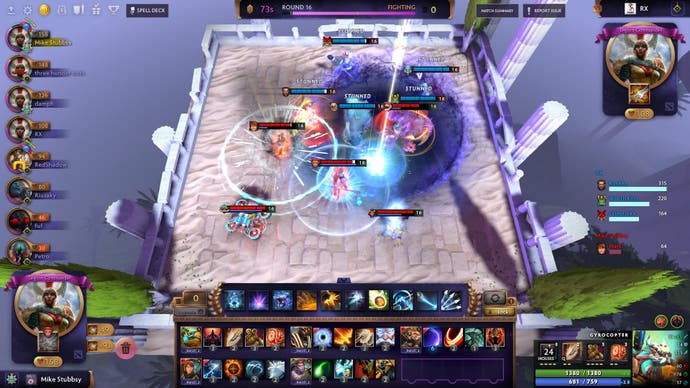
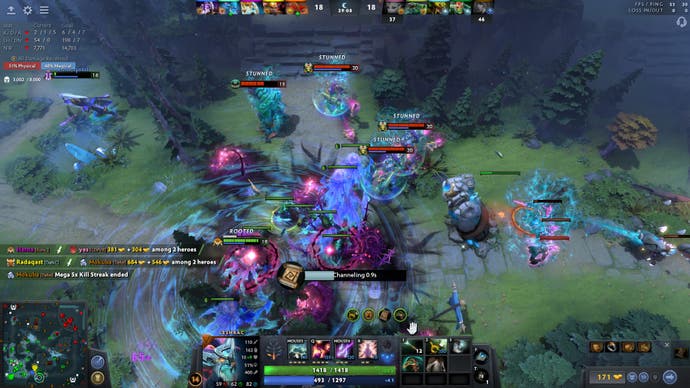
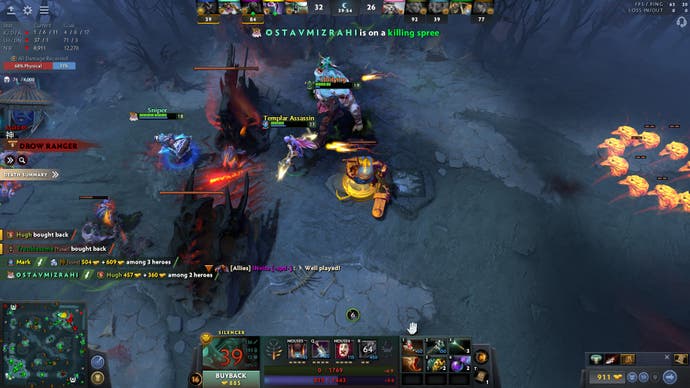
For me, it feels like Dota has just turned onto a brand new road, or lane if you will, and while there are a fair few potholes it needs to navigate, the path further ahead has potential to be a lot smoother. The foundations that the 7.33 patch laid have freshened up the game and should keep Dota fun and exciting for years to come. But in its current iteration, there are issues that frequently make things more annoying than enjoyable, and there's no telling if it will take days or months to fix that.
I was reluctant to lay the blame for a lot of Dota's current issues at the feet of Valve. I found excuses on their behalf, but now realise that's probably just over a decade's worth of exposure to their practices. It has become normal to not expect a patch for months, for Valve to not invest or manage the pro scene as heavily as other publishers, and for them to lose interest in new projects if they don't become an instant hit. I didn't understand why a League of Legends fan read this and their first response was to question why Valve doesn't simply start doing these things; they certainly have the money to (even if Artifact could never have been saved) and they seem like obvious solutions. They are right, Valve could do more, but I don't expect them to. Old dogs don't usually learn new tricks, especially when those tricks still make millions of dollars a year.
But I'll keep playing Dota almost every day and I'm still optimistic about the game's future, even if the esports scene does seem a bit doomed. I'm yet to discover a game that gives you the same feeling Dota does when you win one of those special matches where everything just works. There's always something new to learn, and despite metas becoming stale no two games of Dota are ever close to being the same. It's also a really good, if potentially problematic, way to disengage from the world. Dota requires so much focus for the entire game you can't think about anything else. Unless Valve really messes things up, none of those qualities will ever go away, and that is why I'll keep playing until Dota's last breath.
